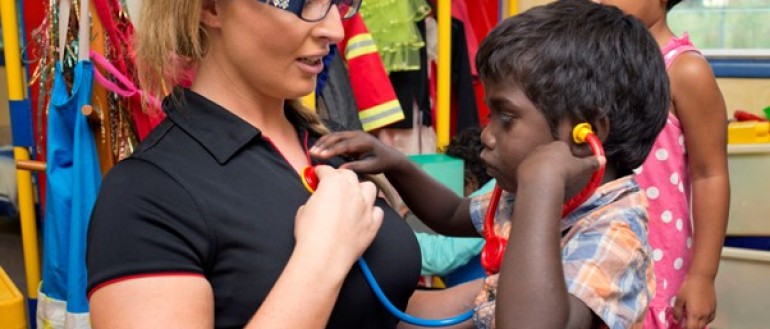Data collection completed analysis underway
Aims:
- To provide an evidence base with a view to improving clinical care and outcomes for women with rheumatic heart disease (RHD) in pregnancy and their babies.
Objectives:
- To investigate the largest population based group of pregnant women with RHD ever systematically studied globally and outline patterns of health risk, diagnosis, course, management and pregnancy outcomes
- To enable benchmarking to identify key attributes of successful, culturally safe models of health care for women with RHD in pregnancy, based on working with those who experience RHD and its impact
- To inform approaches to RHD in pregnancy in Australia and internationally with other RHD stakeholders in the Pacific region, and have direct benefit to over 1500 disproportionately Indigenous women with RHD likely to give birth in Australia and New Zealand over the next ten years.
Method:
The mixed methods research includes a quantitative study with nearly 300 maternity units across ANZ and a qualitative study exploring women’s journey with RHD. It aims to provide an evidence base with a view to improving clinical care and outcomes for women with RHD in pregnancy and their babies. It is the first bi-national study of pregnant women with RHD and will outline patterns of health risk, diagnosis, course, management and pregnancy outcomes.
The study will enable benchmarking to identify key attributes of successful, culturally safe models of health care for women with RHD in pregnancy, based on working with those who experience RHD and its impact. It will inform approaches to RHD in pregnancy in ANZ and internationally with other RHD stakeholders in the Pacific region, and have direct benefit to over 1500 disproportionately Indigenous women with RHD likely to give birth in ANZ over the next ten years.
Summary:
Increased cardiac demands of pregnancy (including 40-50% increased blood volume) often unmask undiagnosed RHD. The impact of pregnancy can be particularly severe and sometimes catastrophic for women who have mechanical heart valves. The choice of anticoagulation medication for these women provides clinical dilemmas as all anticoagulant options carry maternal and/or fetal risks.
Quantitative study: surveillance period January 2013 - December 2014. Data analysis in progress
Qualitative study: data analysis in progress
Chief investigator:
- Professor Elizabeth Sullivan
Project manager:
Contact information:
Funders:
We gratefully acknowledge our funding partners and participating AMOSS sites:
- Funding for this study is through a four year project grant (NHMRC #1024206) 2012-2016.
- The University of New South Wales provided support to redevelop the AMOSS site with a Major Research Equipment and Infrastructure Initiative (MREII) Grant in 2013.
- Other funding support has been provided through the University of Technology Sydney.
- Data collection is supported by AMOSS participating sites.
Collaborators:
Chief investigators:
- Professor Elizabeth Sullivan, Principal Investigator AMOSS, Professor of Public Health, Associate Deputy Vice Chancellor, University of Technology Sydney and Conjoint Professor, UNSW Medicine, New South Wales
- Professor Lisa Jackson Pulver, CI AMOSS, ProVice Chancellor Engagement and Aboriginal and Torres Strait Islander Leadership, Western Sydney University, New South Wales
- Professor Jonathan Carapetis, Director, Telethon Institute for Child Health Research, Western Australia
- Dr. Warren Walsh, Cardiologist, University of New South Wales and Prince of Wales Hospital, Sydney
- Professor Michael Peek, CI AMOSS, Associate Dean, Department of Obstetrics and Gynaecology, Medical School, College of Medicine, Biology and Environment, The Australian National University and Centenary Hospital for Women and Children, Australian Capital Territory
- Dr. Claire McLintock, CI AMOSS, Obstetric physician and haematologist, National Women's Health, Auckland City Hospital, New Zealand
- Dr. Suzanne Belton, Senior Lecturer, Menzies School of Health Research and Charles Darwin University, Northern Territory
Associate investigators:
- Professor Alex Brown, Indigenous Health Theme Leader, South Australian Health & Medical Research Institute (SAHMRI)
- Professor Elizabeth Comino, Senior Researcher, Centre for Primary Health Care and Equity, University of New South Wales
- Heather D’Antoine, Assistant Director Aboriginal Programs, Menzies School of Health Research, Northern Territory
- Dr. Simon Kane, Obstetrician, Lyell McEwin Hospital, Adelaide SA
- Dr. Bo Remenyi, Paediatric cardiologist, Royal Darwin Hospital and NT Cardiac
- Professor Juanita Sherwood, Academic Director, National Centre for Cultural Competency, University of Sydney, New South Wales
- Dr. Sujatha Thomas, Staff Specialist Obstetrics, Royal Darwin Hospital Northern Territory
- Geraldine Vaughan, Faculty of Health, University of Technology Sydney, New South Wales

